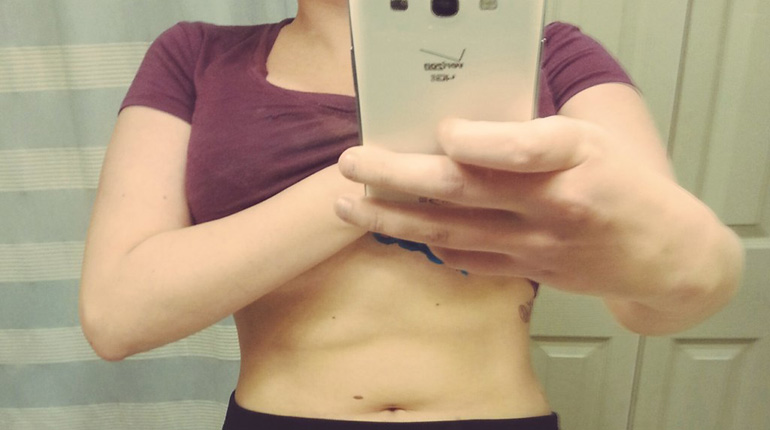
Chronic consumption of large amounts of alcohol not only affects the mental health of the patient but also causes many destructive changes in his body. Fatty and cirrhosis, gastric ulcer disease, pancreatitis, and nervous system disorders are just some of the consequences of long-term drinking.
The sick person neglects their diet due to excessive drinking. Improper nutrition leads to the development of severe nutrient and mineral deficiencies, with all its consequences. Why is a Proper Diet for an Alcoholic so Important?
Why does alcohol cause nutritional deficiencies?
A person suffering from alcoholism, before detoxification, in the advanced stages of the disease, may consume up to 50% of the daily energy requirement from drinking. Unfortunately, alcohol is not a nutrient-rich substance. It only contains the so-called empty calories that your body uses very quickly. Therefore, alcoholism causes deep nutritional deficiencies to develop. They include both nutrients (proteins, fats, carbohydrates) and minerals (mainly calcium, magnesium, zinc, and iron). How does chronic alcohol consumption affect the functioning of human organs?
Many changes occur in the digestive system – intestines, stomach, liver, and pancreas. A protein deficiency in the diet reduces the number of digestive enzymes produced by the pancreas, leading to digestive disorders. Moreover, alcohol directly destroys the cells of the gastrointestinal epithelium, so the absorption process of digested food is disturbed.
Due to the reduced amount of transport proteins in the blood, the transport of nutrients to the tissues is disorganized. In addition, the storage of vitamins in the liver is also disturbed as a result of advanced fatty liver and cirrhosis.
Effects of nutritional deficiencies
An alcoholic’s poor diet leads to many complications resulting from profound deficiencies of many nutrients. An insufficient amount of fat-soluble vitamins (ADEK) causes night blindness (impaired vision in twilight), softening of the bones, and disorders of blood clotting. Difficult absorption causes a decrease in the level of B vitamins. As a consequence, it leads to disorders within the nervous system. Particularly noteworthy is the deficiency of vitamin B1, i.e. thiamine, which can lead to memory and balance disorders characteristic of alcoholism, the so-called Wernicke-Korsakoff syndrome. Additionally, vitamin B12 deficiency leads to the development of anemia.
Deficiencies also include basic nutrients such as carbohydrates, fats, and proteins. In the course of alcoholism, significant fluctuations in blood glucose levels are often observed – it rises after drinking alcohol, but drops to symptomatic hypoglycemia during breaks from drinking. This is due to an insufficient supply of sugars in the diet. In addition, the deficiency of fats and proteins reduces the synthesis of neurotransmitters in the brain, which increases the patient’s susceptibility to mood swings, aggressive behavior, anxiety disorders, and depression.
Symptoms related to nutritional deficiencies can be very strongly manifested in the first days from the beginning of abstinence. Changing eating habits is a long-term process and its results will not appear immediately. The way to quickly fill in the deficiencies in nutrients is alcohol detox. Detoxification effectively eliminates the symptoms of nutrient deficiencies. It allows you to balance the level of minerals and macronutrients within one day and detoxifies the body from excessive amounts of alcohol and its metabolites.
Aims and role of diet in rehab and rehabilitation
Proper diet plays an extremely important role at every stage of addiction. In particular, it is crucial for patients to start treatment – after detoxification from alcohol and starting abstinence. Sometimes it can be decisive in the effectiveness of psychotherapy and pharmacotherapy. The main goals of a proper diet in alcoholism are to supplement the deficiencies of neurotransmitters in the brain, improve the mental state, maintain the patient’s abstinence, and reduce alcohol cravings. The goal of Cornerstone of Southern California rehab is to help individuals overcome their addiction, develop coping skills, and prevent relapse.
The increased supply of proteins (the so-called high-protein diet) increases the synthesis of neurotransmitters in the brain, which is the result of supplementing the key amino acids in this process – tyrosine and tryptophan. Thanks to this, alcohol craving decrease, mood stabilizers, anxiety alleviate and sleep improves. The same effect is produced by the normalization of blood sugar levels. In addition, liver functions improve with an increased supply of polyunsaturated fatty acids.
What to eat after stopping alcohol? What to avoid Proper diet of the alcoholic
We write more about what products to eat while treating alcoholism and after detoxification in the article The correct menu for recovering from alcoholism.
The general rule is simple – as few simple sugars and processed foods as possible. Proper nutrition means that sweets, junk food, and white bread are eliminated right away. What then to eat? During alcohol detox, the diet must contain foods rich in protein, complex sugars, and polyunsaturated fatty acids (EFAs).
The sources of protein are cheese, soybeans, milk, and legumes. White bread and rolls should be replaced with wholemeal bread, the same applies to pasta. Adequate hydration is very important – drinking at least two liters of water a day and introducing soups into the diet. The goal is to provide as many nutrients as possible with food that the body can use to regenerate during alcohol withdrawal.




